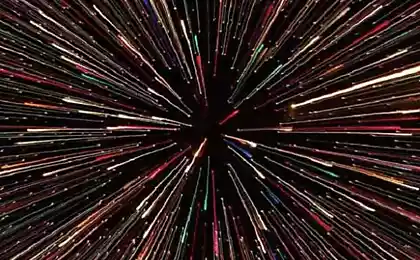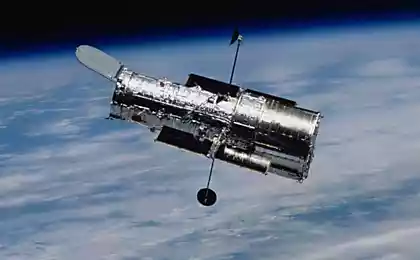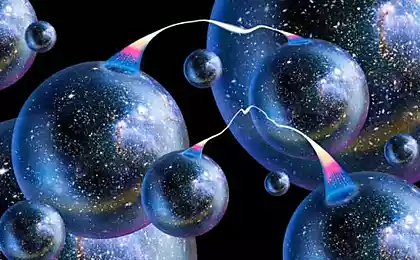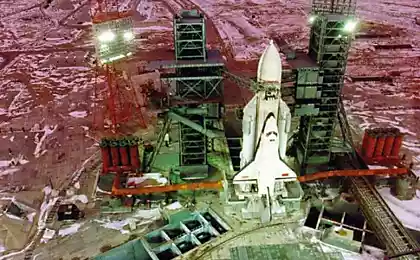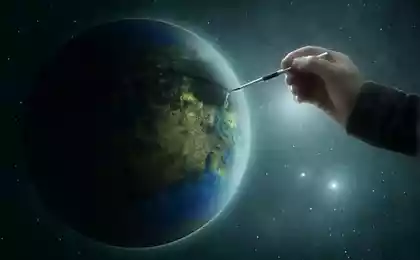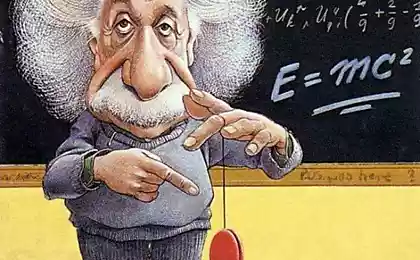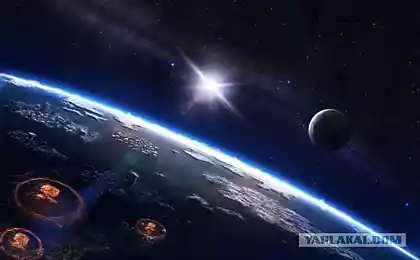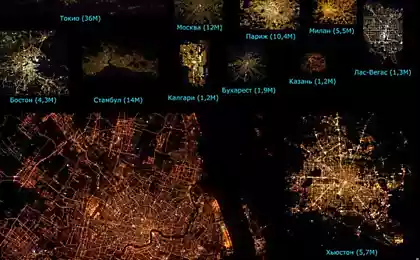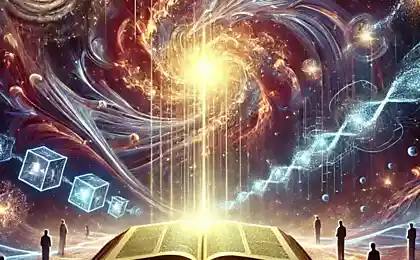1515
Paradoxes, the solution of which can change our view of the universe
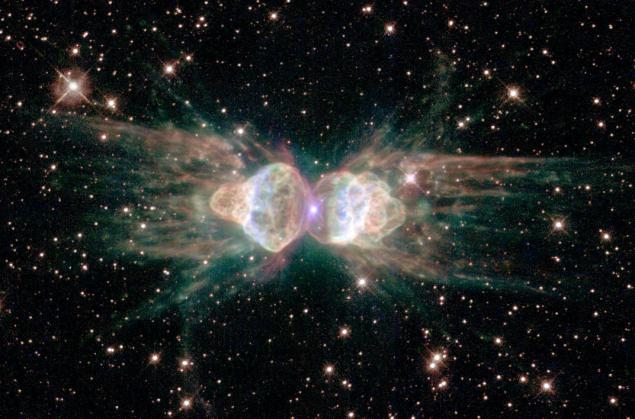
Revolution in science often occur in the course of research, seemingly unsolvable paradoxes. Focus on them and, ultimately, to find a solution - this is what has led us to many important breakthroughs.
It will be interesting to enumerate those paradoxes that are associated with modern concepts of cosmology. It is possible that their decision will lead to a breakthrough and the development of ideas about the structure of the universe next generation.
Yuri Baryshev from St. Petersburg State University is working just on issues of modern cosmology. The result of his work - a list of paradoxes based on well-known ideas and observations about the origin of the universe.
Perhaps the most dramatic and, at the same time, the most important for cosmology paradox associated with one of the greatest achievements of this science - the assertion that the universe is expanding.
And it is based on the following observations.
We know that other galaxies are moving away from us. The proof of this fact is that the light from these galaxies has красное offset , and the greater the distance - so it is stronger.
Astrophysics interpret this as evidence that the more distant galaxies are moving away from us at a higher rate. Moreover, recent data suggest that the rate of expansion increases.
What is really interesting is the fact that for such an extension should be provided with appropriate facilities - and the space vacuum. But as it happens, we are still not clear. Creating space has not yet been described in cosmology, it is a new phenomenon whose existence has not been confirmed by us in the laboratory.
Everything else, in a given volume of the universe can only exist corresponding amount of energy. If we observe an increase in the size of the universe, and the total amount of energy corresponding, must also increase. But if we turn to physics, the Law of Conservation of Energy states that energy can not come out of nowhere and disappear into nowhere.
British cosmologist, Ted Harrison commented as follows: "In summary, whether we like it or not, it becomes obvious: energy in the universe is not saved i>».
This problem is well known in space exploration, but if you ask them directly, they will only shift from one foot to the other in silence and bury at the floor. Obviously, any theorist who can solve this problem, securing a bright future in the scientific cosmology.
Nature energy associated with the vacuum still remains a mystery. This phenomenon is called in different ways: either the zero-point energy, or Planck vacuum energy. Quantum physicists have spent enough time trying to calculate it.
Their results show that the vacuum energy density is enormous, about 10 94 sup> g / cm 3 sup>. Since energy is equivalent to mass, it should provide a gravitational effect on the universe.
Cosmologists searched the gravitational effect (cosmological constant) and calculate its value based on their observations. It is estimated that the vacuum energy density (in the broad masses better known as «Тёмная energy ») is about 10 -29 sup> g / cm 3 sup>.
Obtaining academic figures difficult to reconcile, because their values differ by 120 orders. For some reason, there is no one to explain this contradiction can not, which is very confusing every single cosmologists.
In cosmology, there is another mystery - redshift, referred to above. Physics attribute this phenomenon эффекту Doppler , comparing it to change the pitch of a police siren when the car passes by.
Doppler effect occurs due to the relative movement of the objects. But in our case the cosmological redshift is characterized in that according to cosmologists moving space itself during the expansion of the universe, galaxies and remain there motionless.
Therefore, to describe such an extension is also used by other mathematical tools, not least due to the fact that in ordinary physics relative speed should always be less than the speed of light. But the rate of expansion of space itself may not be what you want.
What's interesting - the nature of the cosmological redshift gives us the opportunity to direct measurements in the coming years. The idea of such measurements is that the redshift of very distant objects should increase with distance. For distant quasar, this change may be on the order of one centimeter per second per year. Such a change can already be observed by the largest telescopes of the next generation.
And finally mention another paradox. He originates in one of the assumptions of Einstein's general relativity that if the observable universe with sufficient removal, it must be the same in all directions.
It is clear that the assumption of homogeneity is not applicable on the local urovne.Nasha Galaxy - part of the Local Group of galaxies, and that, in turn - part of a larger supercluster.
Such a device requires фрактальность structure of the universe, ie, The universe consists of clusters regardless of its point of observation.
The problem is that it contradicts one of the basic ideas of cosmology - Закону Hubble , the observation that the redshift of an object when it is linearly proportional to the distance from the Earth.
Hubble's law is deeply integrated into the structure of modern cosmology. At the moment it is the most common theory and states that the expansion of the universe is linear. And well, if the universe is homogeneous and, as a consequence, linear at large scale.
But the results are contradictory observations. Astrophysics measured linearity according to the Law of the Hubble at a distance of a few hundred Mpc. And the presence of clusters in the same scale says that The universe is heterogeneous i>.
So that the arguments in favor of the linear relationship in the Hubble law is due to the homogeneity of the universe (or vice versa) is not tenable. And modern cosmology again becomes uncomfortable because of this failure.
Sometimes it's hard to resist the temptation to say that the cosmological picture of the world as a whole is almost complete, the model of the Big Bang and all that follows from it, is not it describes everything that we see around us. Certainly not! Cosmologists only managed to temporarily fill holes in their theories. This "success" - nothing more than an illusion.
But the way it should be. If scientists are really starting to think that close to the full and definitive description of reality, it is a simple list of paradoxes can give them a huge favor and return to earth.
Source: geektimes.ru/post/244930/

